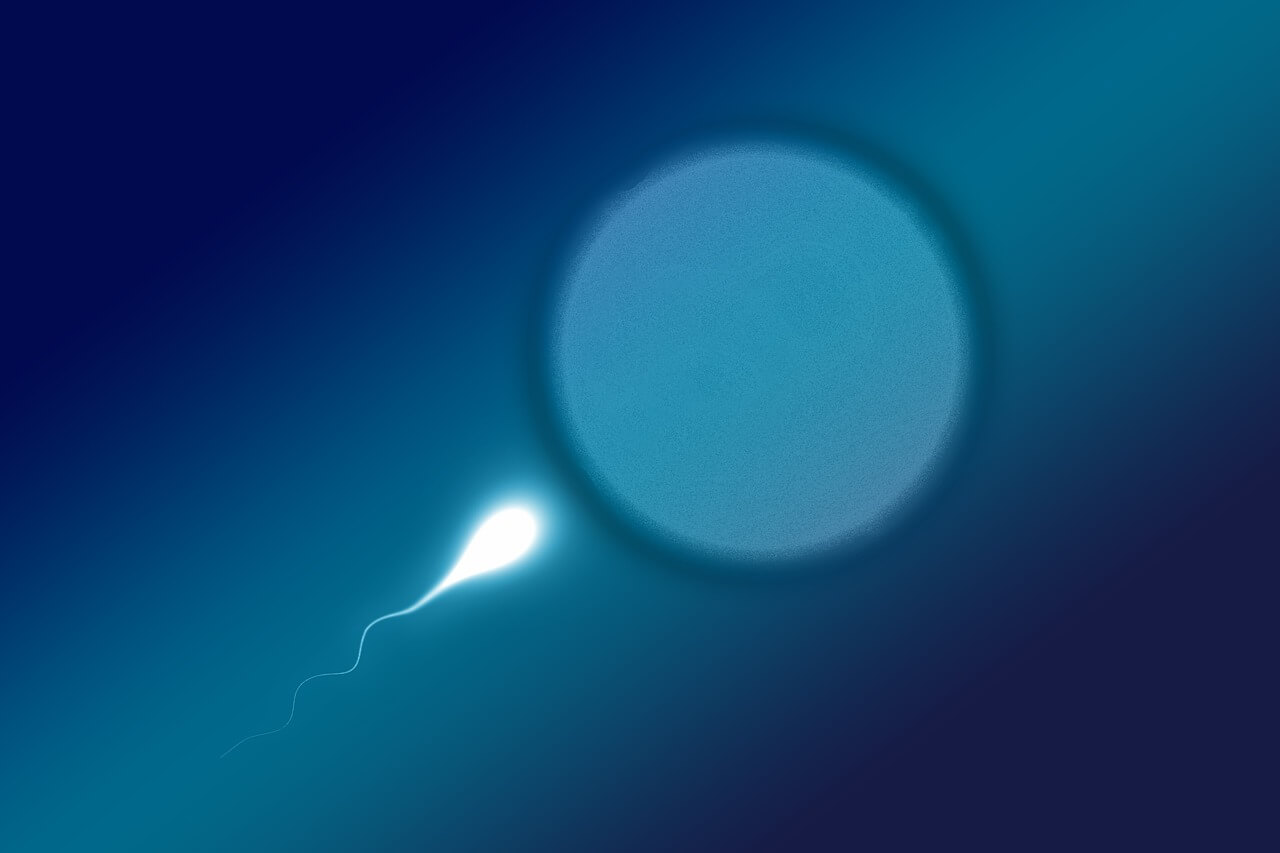Female sex cells are known as eggs. These fuse with male sperm in sexual reproduction. A female egg contains half the genetic information, and a male sperm contains the other half. Sex cells are known as gametes. In sexual reproduction the female sperm and male sperm fuse together and form a zygote. The zygote implants itself into the womb lining and this develops into an embryo. The embryo may then develop into a child.
Where Are Eggs Made?
Eggs are made in the follicle of a womb in a female. They develop under the direction of the hormones oestrogen and follicle stimulating hormone (FSH). The egg is released at day 14 of the menstrual cycle under the direction of luteinising hormone (LH). Progesterone is needed to maintain the womb lining. If a sperm and egg do not meet in sexual reproduction, the egg and womb lining are then shed in the menstrual cycle. This is known as menstruation. This cycle is 28 days. It can be longer or shorter dependant on age, health status and whether or not a female is using contraceptive medication.
How Many Eggs Does a Woman Have?
A female is born with around 1,000,000 eggs. When she reaches the age at which she is fertile when she begins menstruation at age 14 on average, she has around 500,000 eggs. The optimal window for reproduction is between the age of 18 and 31. Between these ages a female has around 300 to 400,000 eggs.
With age, the number and quality of eggs decline. This is because eggs are not like other cells, and there is only a fixed number available. After a female has used up her eggs, there are none left in her stores.
- After the age of 31, the number of eggs gradually falls
- By 35, there are roughly only 50,000 eggs left
- By 40 years of age, this has fallen to 5000 or 5% of the total eggs she had in her reproductive window
Therefore, fertility declines as you age. there is nothing you can do to increase your number of eggs other than to store the eggs you have when you are young with egg freezing. This is when a female takes her eggs and stores them under liquid nitrogen until a later stage when she is ready to conceive a child.
The number of eggs a female has can be determined by testing hormones and via scans. Hormones, such as, oestrogen, testosterone, progesterone and follicle stimulating hormone levels as well as testing anti mullerian hormone (AMH) levels and scanning the womb using an ultrasound to visually see how many eggs are in the womb.
If the egg count is low, this may be difficult for an individual who may wish to conceive but has lower chances of doing so. However, using an egg donor in such a scenario is a viable option for a successful pregnancy. If a female has decided to freeze her eggs, she can use these eggs at a later stage in IVF and go on to have a biologically genetically similar child to herself.
What Are the Factors Which Impact Egg Numbers?
Both genetics and lifestyle choices impact the number of eggs an individual has:
- Menopause: Some women go through early menopause as a result of genetic reasons, which can lower their egg count.
- Weight: Low and high weight can also impact the amount and quality of eggs.
- Lack of Folate and B12: A diet low in folate and B12 can also impact the number of eggs a person has, as folate and B12 are needed to make genetic information and make new cells.
- Lack of Iron: Iron also plays a role in the production of new cells, and therefore, a diet low in folate B12 and iron will face reproductive issues.
- Illness: Cancer of the female reproductive system can limit a female's chance of having a child and stop her fertility too.


 71–75 Shelton Street, Covent Garden, London, WC2H 9JQ
71–75 Shelton Street, Covent Garden, London, WC2H 9JQ +44 (0) 20 3376 1032
+44 (0) 20 3376 1032



